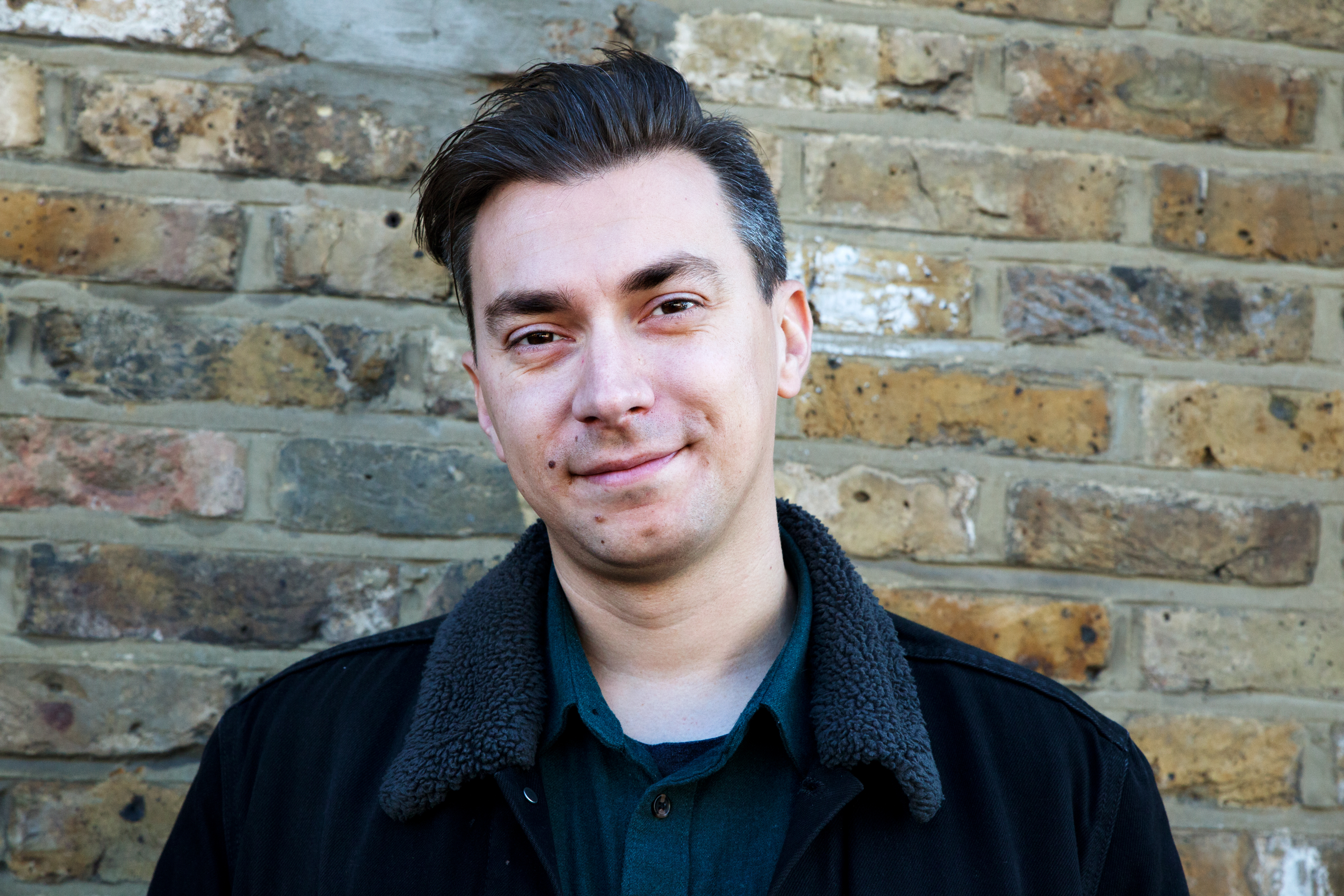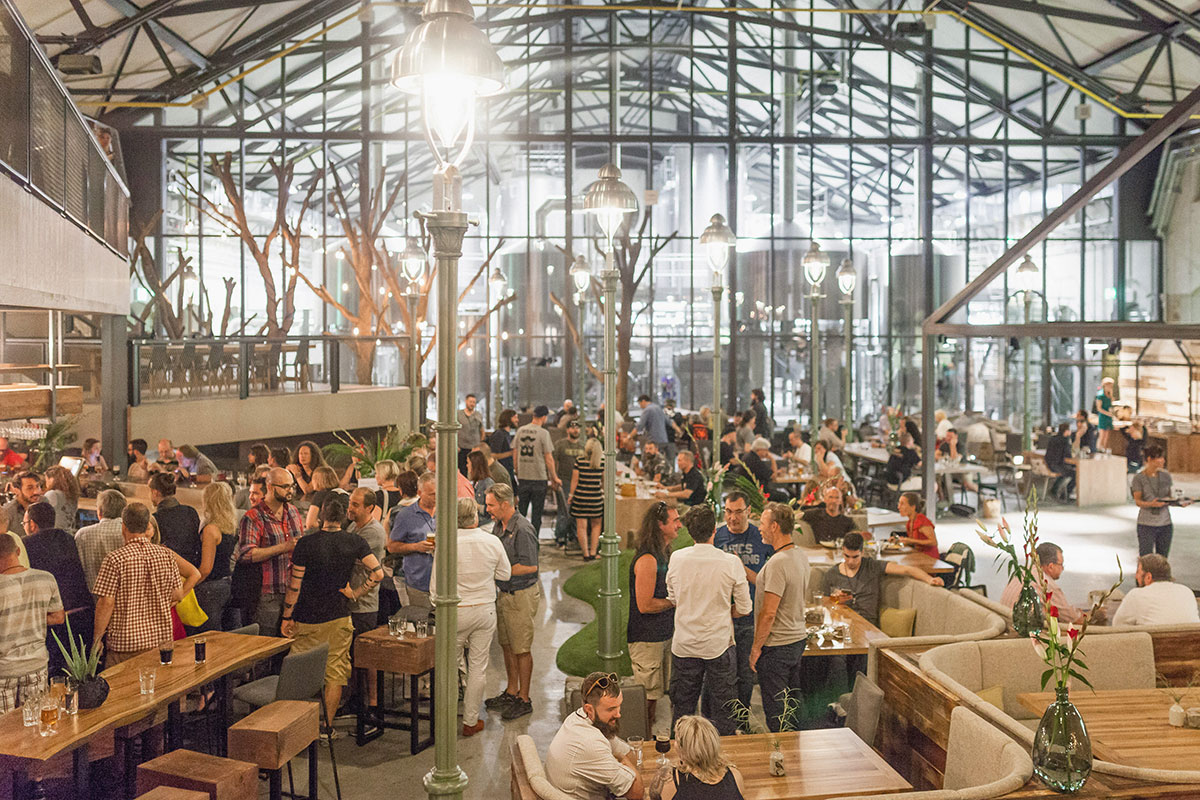Shop
What Exactly Went Down at Cloudwater’s Beer Festival?
And how the town rallied behind the brewery.
The thing you need to know about Manchester is that it looks after its own no matter what. England’s second city, in the north west of the country, has a reputation for its stoicism.
It’s a fact that won’t be lost on Cloudwater founder Paul Jones. His brewery, which celebrated turning 4 this February, held its inaugural beer festival in its home town on March 1 and 2. Billed as ‘Friends & Family & Beer,’ the nonprofit event promised to be “one heck of a party with our brewing family” according to its own website.
The lineup boasted 66 breweries, including 26 from North America. Hyped names such as Other Half, The Veil, and Hill Farmstead graced the same list as popular UK breweries such as DEYA, Burning Sky, and Verdant. Beer was also pouring from Manchester stalwarts Marble and the near 200-year-old JW Lees, the latter known around the world for its Harvest Ale barleywine.
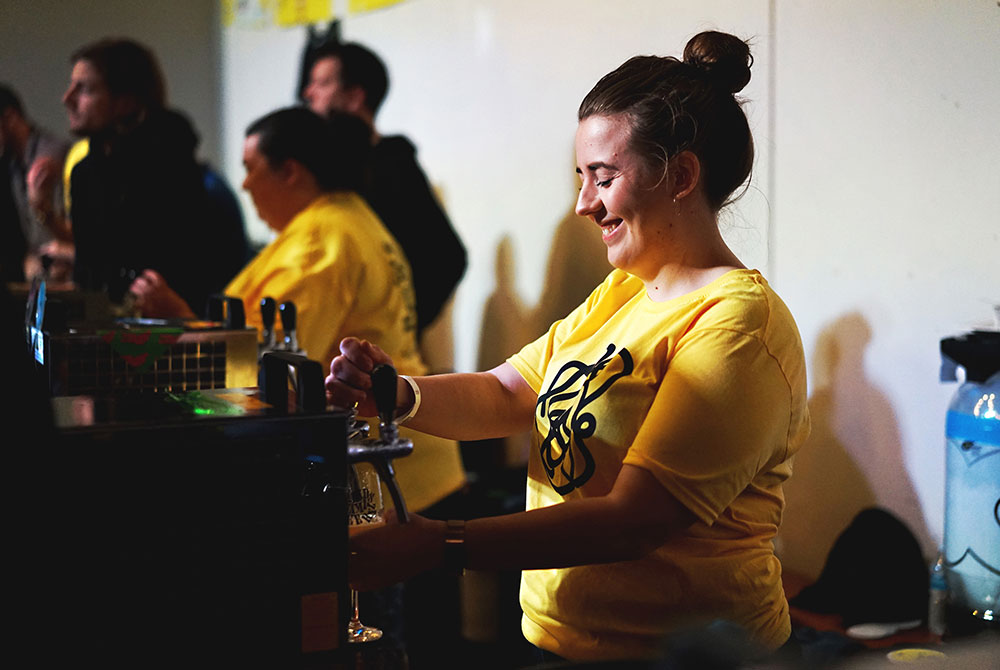
Some such as Denver’s TRVE Brewing and Creature Comforts of Athens, Georgia poured their beer in the UK for the first time. And while they didn’t command the lines in the same way as Monkish or Trillium, they saw the benefit in attending.
“When Paul [Jones] told me he was going to be throwing an invitational it was an immediate yes from us,” TRVE founder Nick Nunns says. “It’s always an incredible educational experience to see how our beer is received by markets outside of Colorado.”
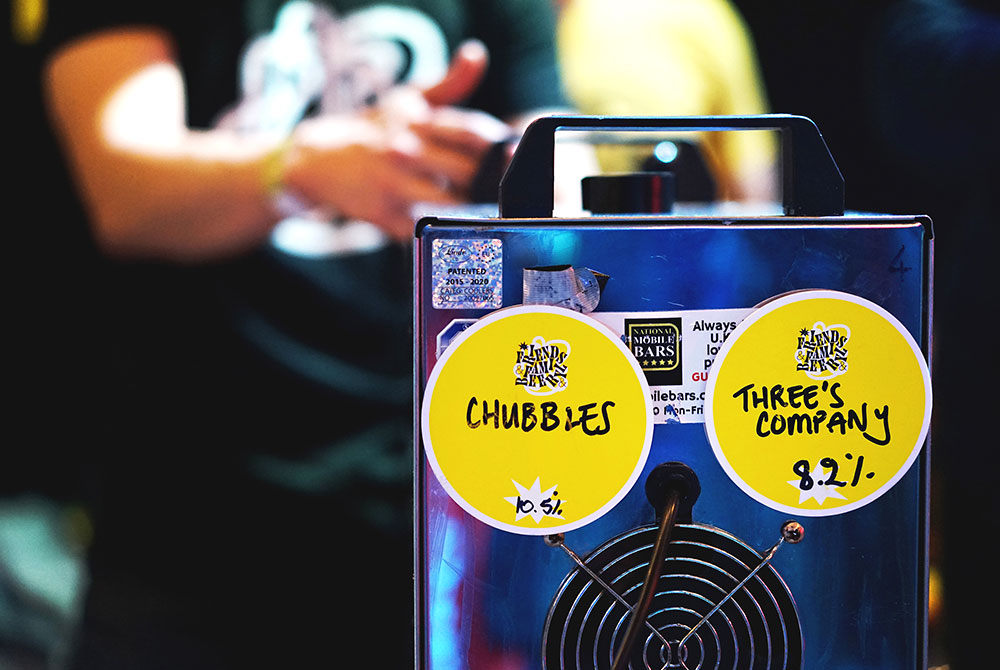
Jones has spent much of the four years of his brewery’s existence on the road, with the majority of that travel time taking place in the US. He’s fostered multiple relationships creating a stronger link between the US and UK scenes and both have benefitted as a result. The number of collabs emerging between attending producers from both sides of the Atlantic is testament to this.
“I wanted to bring all of the great vibes and experiences that I’ve had in the US back home to Manchester,” Jones tells me. He’s also enthusiastic that much of the hoppier styles pouring at the event are no more than 3 weeks old, giving UK beer fans a true taste of the US, while also introducing a number of American brewers to British beer culture.
“These are breweries we’re fucking excited about and wanted to bring over to party with us,” he says.
And on Friday, the first night of the festival, the good vibes flowed as freely as the drum and bass Jones piped into the cavernous, yet intimate space within Upper Campfield Market where the event was held. Despite crowds of around 1000 people at each of the two sessions that day, no brewery ran short of beer, everyone got to experience a little bit of everything and plenty of folks staggered out the building full of buzz, beer, and new experiences.
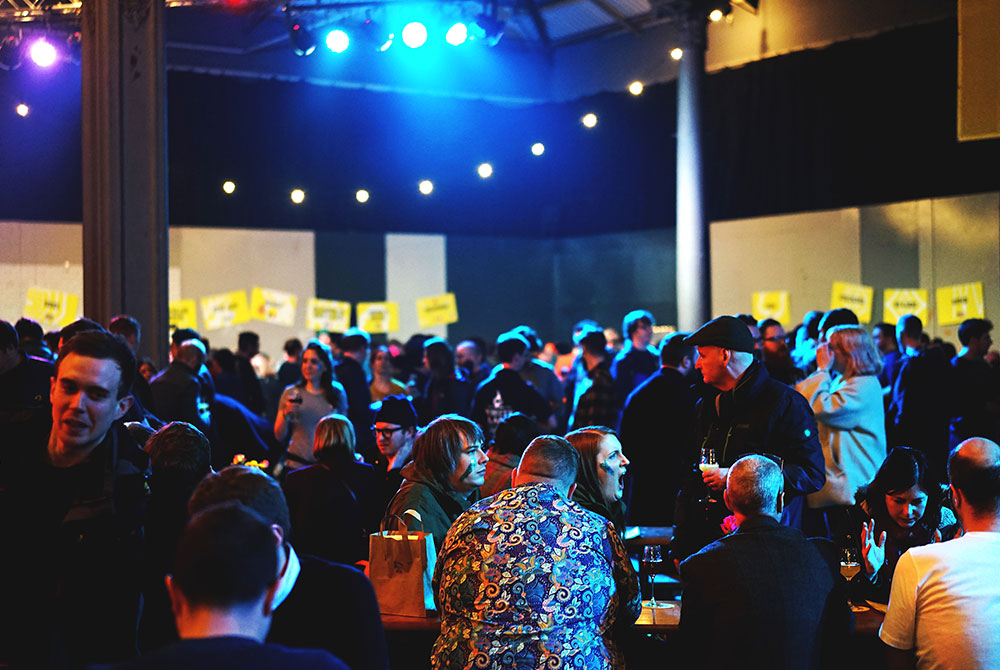
Few knew, however, of the drama unfolding behind the scenes.
Despite assurances from Jacobs, the agency managing the festival site on behalf of Manchester City Council, it turned out that the venue was not licensed for the consumption of alcohol. When the police arrived on site Jones was told to shut the event down or risk an unlimited fine and up to a six-month jail term.
Worse than that, he was informed that the event could not continue into its second day, when two more sessions were set to run. Over a thousand tickets had been sold, and some festival attendees had traveled from as far away as Japan, mainland Europe, and New York City. Jones states that there was no doubt in either his or his team’s mind that the space wasn’t licensed for its use but admits that with hindsight they should have done more to ensure this was so.
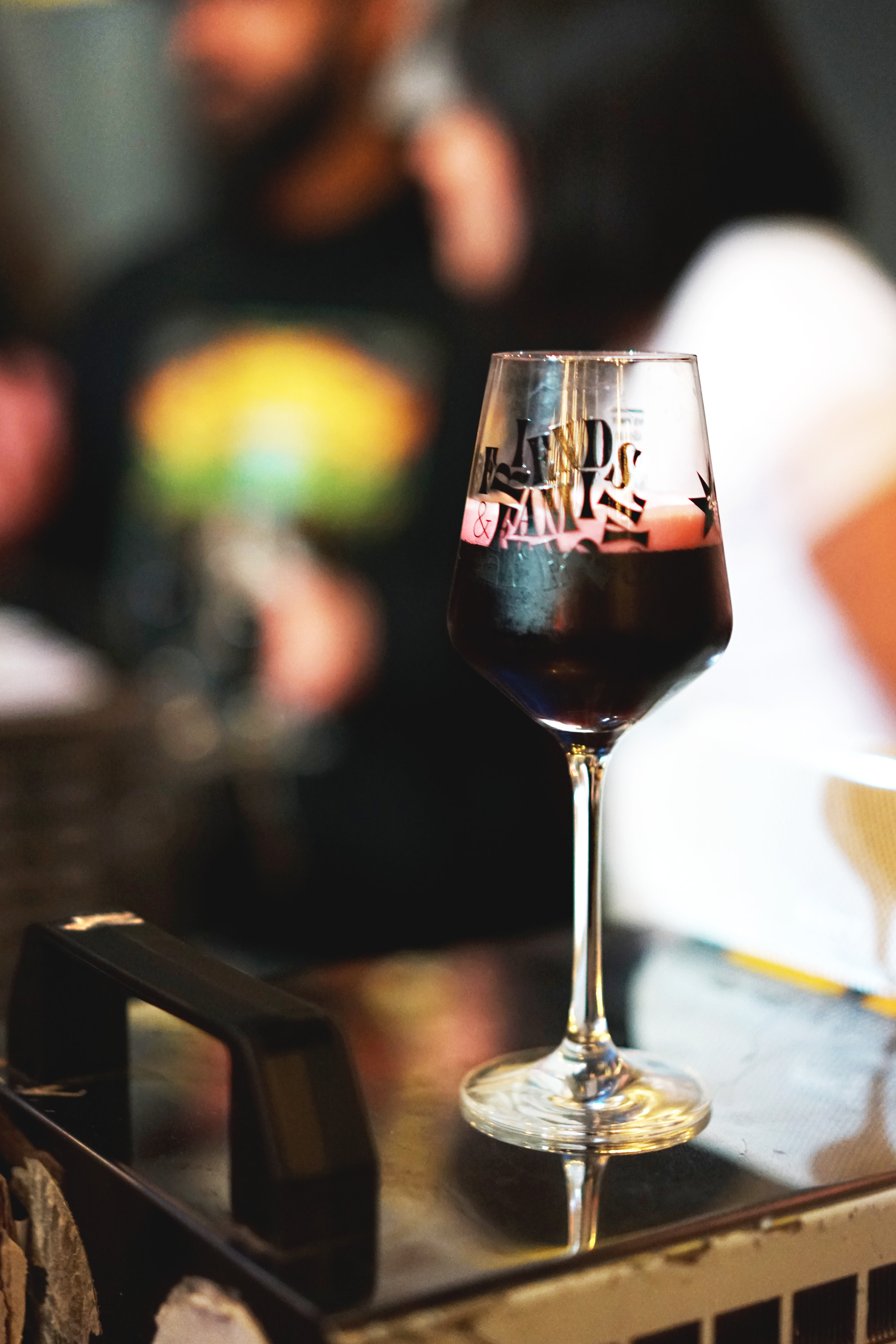
By midnight Friday, the decision they faced was to find another venue or not continue with the event at all. They put out a blog post explaining what had happened and how they were trying to resolve the situation. Even going as far as reaching out to the Mayor of Manchester, Andy Burnham, and the city’s ‘Night Tzar’ Sacha Lord, who looks after the city’s hospitality economy.
“We went from elation, to sore disappointment, to trying to figure out a solution,” Jones says. “I became numb, stoic, and then completely in the moment. I had to put my emotions on hold for 24 hours while I focused on working to find a solution with my team.”
Cloudwater staff was on site by 7 AM Saturday morning to begin packing the site down. By 11 AM, when the first session of the day was due to start, both customers and volunteers who hadn’t seen the blog post began arriving. Manchester then rallied round to support its own, with everyone at the site—including customers—helping out, ready to mobilize to another site at a moments notice. Brewers lent vans and lifted kegs, moving everything to Cloudwater’s warehouse 3 miles away.
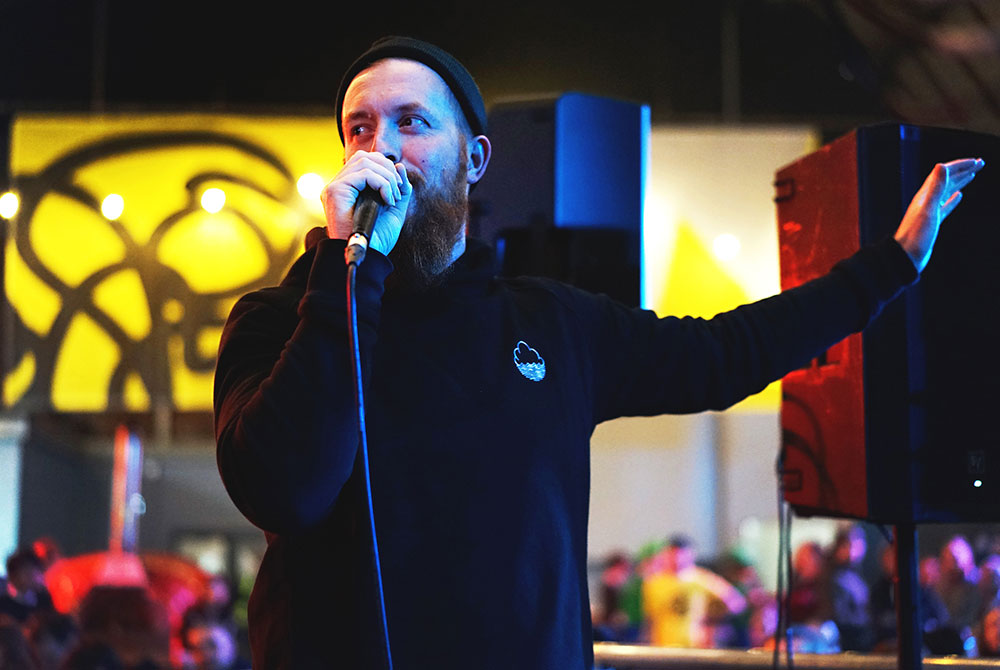
Then, something of a miracle happened. The brewery was given soft assurances from the Mayor’s office that despite not being licensed, the event could go ahead at the original venue—providing there was no music, and that there was zero drunken behavior from those attending. Everything was moved back to the venue and set up in less than an hour. At 2 PM the first session went ahead, albeit for a slightly shorter 3-hour period.
At the start, a far more somber Jones than the day before took to the microphone to urge festival goers to be on their best behavior. To the relief of many, everyone not just obeyed but gave the announcement a rapturous applause.
And while the team at Cloudwater got their heads down and continued with running the remainder of the festival, the drinkers carried on with tasting some of the most exciting beers in the world. While day two might not have had the atmosphere of the first, this didn’t seem to dampen the enthusiasm of those in attendance, customers and brewers alike.
“If the response from the beer community hadn’t been so positive it wouldn’t have gone on,” Jones sums up, succinctly. “Next year is gonna be phenomenal, I can’t wait.”
Liked this article? Sign up for our newsletter to get the best craft beer writing on the web delivered straight to your inbox.


